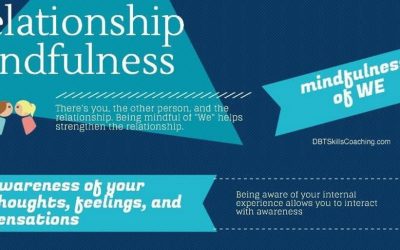Creating pleasurable experiences is part of regulating your emotions. It’s a DBT skill that can be overlooked. Being mindful of opportunities for joy is part of feeling joy. You may be passing up times that could add joy and meaning to your life. These experiences don’t need to be really huge, like a fabulous vacation–joy can come from small, everyday pleasures. Here are some things to consider.
What opportunities for joy do you have in your life? One opportunity to feel joy is in hearing something nice from someone else. How are you at really hearing and accepting compliments? I can hear some of you saying, “but I don’t deserve compliments”. Now that’s a joy-buster! When you are given the gift of a compliment, do you listen and take in what the person is saying? Or do you automatically push it away in some way? That’s a way of losing an opportunity for joy.
Maybe you have the opportunity for pleasurable sensations, do you experience them fully? Like the taste of ice cream on your tongue–do you savor it and focus on the pleasure of the taste? If you feel a cool breeze on a hot day, do you savor that? What about a hug from someone you care about?
When you are depressed or sad or very busy, you can overlook everyday joys. There are many events and experiences that give a sense of joy and contentment, even in difficult times. Icy cold drinks on a hot day, driving a clean car, interesting conversations with good friends, beautiful views, quiet, doing something new, learning, sharing information, and accomplishing difficult tasks are joyful experiences for me. I love flowers and sunsets and snuggling my dogs. I thrive in a clean house.
Sometimes, though, joy stealers creep in and take away the joy of these everyday experiences. The joy stealers that affect me may be different than the ones that take away your smiles and contentment. For me, critical and grumpy people can turn a day going to the zoo and out to dinner from fun to “how soon can I get out of here?” If this happens on a regular basis, maybe it’s time to problem-solve the issue, perhaps a DEAR MAN?
Other joy squelchers include worrying about troubles so that you don’t notice what is right before your eyes in the moment, comparing your experiences to those that you imagine have it better than you, and being overly self-conscious so that you are in your head and not enjoying the moment. For example, if you are basking in a friend’s swimming pool you could lose the pleasure by focusing on how lucky she is to have a pool (in an envious way). You could also think constantly about how fit and toned your friend is while you have not lifted weights in years. You could also be preoccupied about what to say and how to be “fun” that you come across awkward. The experience becomes about your anxiety rather than just being in this pleasant moment by the pool with friends.
Keep bringing your mind back to the present moment and savoring the joy. Being mindful in terms of throwing yourself in and participating fully is important. You notice the thoughts in your head, label them and then throw yourself into being in the moment. You may have difficulties to address after the pleasurable time, but allowing yourself to take what pleasure you can in the moment will help you regulate your emotions in the long run, and will help you be more resilient. Savor your joys and be mindful of them each day. That mindfulness of joy will help you keep your balance in the difficult times.
Live a skill-full life. By, Karyn Hall, Ph.D., May 31, 2020





0 Comments